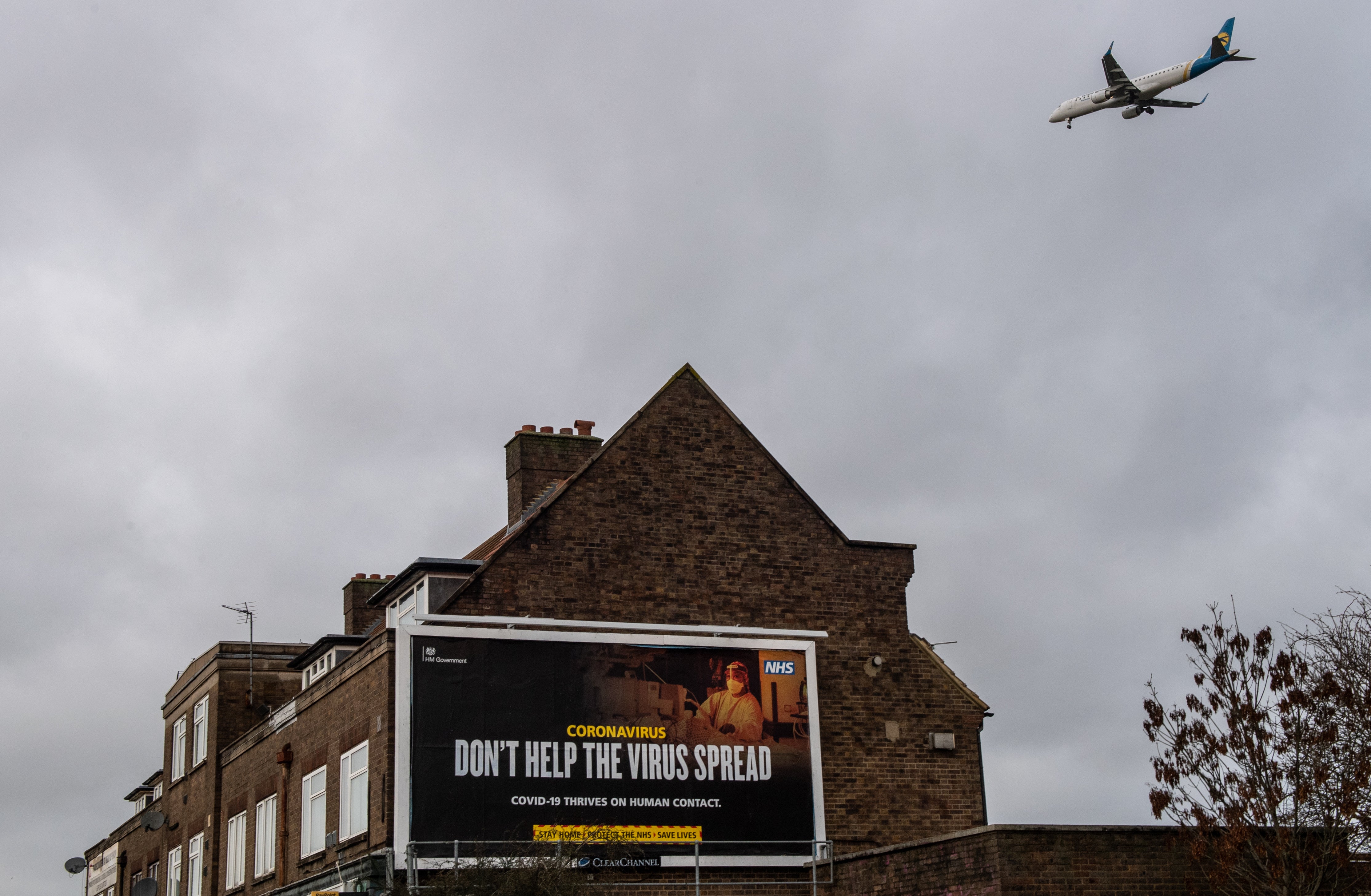Tough restrictions on international travel ‘should stay’ this summer to keep variants out
Government should have imposed tighter controls at airports from start of pandemic, says Yvette Cooper

Your support helps us to tell the story
From reproductive rights to climate change to Big Tech, The Independent is on the ground when the story is developing. Whether it's investigating the financials of Elon Musk's pro-Trump PAC or producing our latest documentary, 'The A Word', which shines a light on the American women fighting for reproductive rights, we know how important it is to parse out the facts from the messaging.
At such a critical moment in US history, we need reporters on the ground. Your donation allows us to keep sending journalists to speak to both sides of the story.
The Independent is trusted by Americans across the entire political spectrum. And unlike many other quality news outlets, we choose not to lock Americans out of our reporting and analysis with paywalls. We believe quality journalism should be available to everyone, paid for by those who can afford it.
Your support makes all the difference.Ministers must beef up border controls and slow down the reopening of international travel to prevent future Covid-19 variants taking hold in the UK as the Indian variant has done, a senior parliamentarian has warned.
Writing in The Independent, Yvette Cooper said that the spread of the highly infectious B1.617.2 to the UK could have been avoided or slowed down by tougher action on the border.
She accused the government of being insufficiently vigilant, and said the “likeliest explanation” for the late addition of India to the government’s travel “red list” in April was Boris Johnson’s hopes that he would be able to go ahead with a trade trip to the country at the end of that month.
Speaking to the BBC, Ms Cooper, who chairs the House of Commons Home Affairs Committee, said the government should slow down its plans to open up England to travellers from more destinations.
Ministers have already announced a “green list” of 12 countries, including Australia, Israel and Portugal, which will not require quarantine for arrivals from Monday, and more are expected to be added by the summer holiday season.
But Ms Cooper told BBC1’s Andrew Marr Show: “The government needs to slow down its plans. I don’t understand why it’s lifting some of its international travel restrictions tomorrow. I think they should be being much more cautious about that.”
And she said she would favour a South Korean system involving a much stronger system of home quarantine than in the UK, alongside hotel quarantine for travellers from the most high-risk countries.
Arrivals from amber-list countries should not be able to use public transport to travel home for quarantine without being tested at the airport, as they do under the current scheme, she said. And monitoring of their 10-day self-isolation at home should be made more rigorous, following widespread reports of individuals receiving no more than a phone check to see if they are abiding by rules.
Writing in The Independent, Ms Cooper said: “Time and again we have seen similar mistakes and delays in acting on Covid at the border. Lessons must be learned or it will happen all over again.”
The government’s failure to impose red-list controls, including mandatory quarantine at airport hotels, on arrivals from India until 23 April, when neighbours Pakistan and Bangladesh were placed on the list on 2 April, was “not good enough”, she said.
“Throughout a tough winter, the British people have done their bit,” said Ms Cooper. “People locked down, families stayed at home and businesses shut up shop. We stopped hugging, gave up Christmas, and we’ve been out in droves to support the vaccine programme.
“But we needed the government in return to be vigilant against new variants to make sure that those sacrifices weren’t undermined.”
She said that up to 10,000 Covid cases had arrived in the UK at the outset of the pandemic in March 2020, when there were no special border restrictions at all. Overseas cases contributed to the September surge at a time when controls were “chopping and changing”. And the government was “slow to act” on South African and Brazilian variants which emerged around the end of last year.
“We all desperately hope that this latest variant will stay under control, that the vaccine will remain effective and will be rolled out fast enough, and that we can keep opening up on track,” said Ms Cooper. “But the risk of new variants isn’t going away, and we need a better approach to borders.”
She called for the publication of weekly assessments by the Joint Biosecurity Centre of case rates and new variant risks from different countries around the world, allowing ministers to “act fast on a precautionary basis”.
And she demanded improvements to border testing and quarantine, including a reduction in the list of exemptions from the testing regime, as well as direct government support for the aviation and travel industries while the government takes a “more cautious approach” towards the reopening of international travel.
“After a difficult year we must keep the vaccine programme on track and keep making steady progress towards getting back to normal,” said Ms Cooper. “We cannot afford for the government to repeat the same mistakes all over again.”
Join our commenting forum
Join thought-provoking conversations, follow other Independent readers and see their replies
Comments